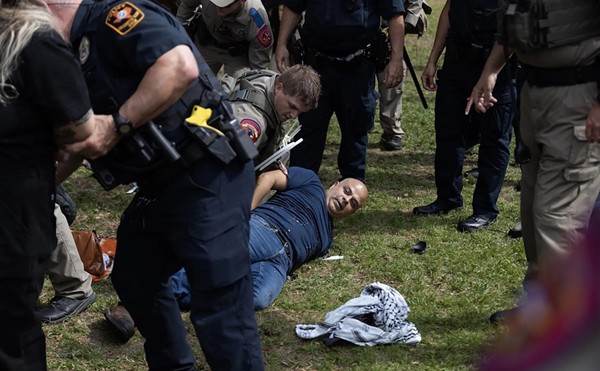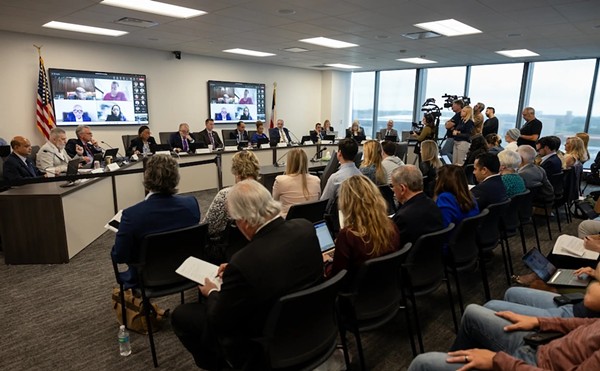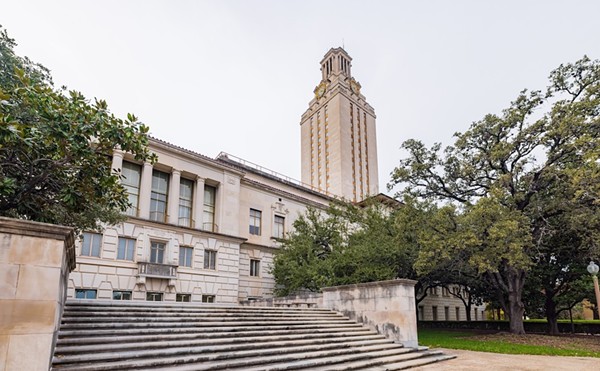Journalists cover the American political system. To what degree should they be allowed to participate in it?
The New York Times ethics handbook states that, “journalists have no place on the playing field of politics.” But where do journalists draw the line between their voting rights as citizens and their professional duties? It is, perhaps, not the most fervent debate occurring in modern newsrooms, but it warrants attention in the aftermath of a highly visible race to get Independent candidates on the Texas gubernatorial ballot. On November 7, general election day, Texans will go to the polls to decide the fate of Governor Rick Perry. But in the decision whether or not Independent candidates will populate his field of challengers, most of our journalists were left out.
Texas reporters found themselves with fewer choices during primary season than the rest of the voting public because newspapers do not want their staff to be politically involved. Reporters at the San Antonio Express-News, and at most other major Texas daily newspapers, were instructed not to sign any Independent candidate’s petition.
Many states allow voters to register without declaring party membership, allowing them to vote in a primary, which are only for major-party candidates, and sign an Independent’s petition. But in Texas a voter cannot do both, because signing a petition after voting in a primary would render the signature void. Primaries and petitions are not equal, according to the Texas Secretary of State’s office, but casting a vote in a primary effectively declares you a member of the party whose candidates you voted for until the end of the voting year.
Texas journalists are therefore limited to voting in the major-party primary. Of course, they can vote in general elections for whomever they want; voting records are private, whereas petitions are filed with the Secretary of State’s Office. Other independent candidates can see the signatures of their challenger’s supporters.
Some newspapers directly address petitions in their ethics policies, according to Robert Steele, a senior ethics faculty member at the Poynter Institute. Other papers might not address the issue directly, but connect petition-signing to restrictions on political activity by their journalists.
For example, the Express-News policy is written in a language commonly found in the ethics codes of Texas dailies: “`The staff should`...not make contributions to or work for political parties or have direct involvement with political issues `and` not participate as an activist in public rallies, marches or demonstrations.”
Express-News projects editor David Sheppard said in an email that several journalists at the paper asked senior editors if they could sign the petition for Kinky Friedman or Carole Keeton-Strayhorn.
“Our answer was no,” he said. “We prohibit direct political involvement to maintain our impartiality as journalists and our credibility with readers,” said Sheppard. “Signing a petition demonstrates open support for a specific candidate; a primary vote is a secret ballot.”
Friedman’s press secretary, Laura Stromberg, said she knows of three Texas journalists who signed his petition after seeking permission from their editors. “They were told to do what they have to because they are private citizens,” she said. “Their editors told them they just don’t want to hear about it.”
Journalists have to be careful due to the wary eye of a public whose judgment has grown more critical in recent times. Steele summarizes the problem: “The public perception of a conflict is powerful and it gets in the way of our journalistic duty.”
“It’s discouraging that we can’t make our political statements independently,” said Stuart Comstock-Gay, executive director of the National Voting Rights Institute. But, he added, placing strict restrictions on political activity is a condition of many organizations, including non-profits, who wish to maintain neutrality.
“It’s potentially a problem if papers are telling their journalists they can vote for a pre-selected, major-party candidate but can’t sign a petition for an Independent,” said Comstock-Gay. He doesn’t see the policy as helping newspapers appear neutral. To him, he said, it sounds like they are actually discouraging Independent candidates and a level playing field. The issue is a “slippery one” to Robert Jensen, a University of Texas associate journalism professor with a Ph.D. in media law and ethics. “It is unnecessary hyper-vigilance to say that all journalists can sign no petitions,” he said.
Jensen believes that journalists who refrain from voting altogether are “silly.”
“Everyone knows that journalists have political opinions, just like all people,” he said. “I see no reason why journalists shouldn’t be able to sign petitions for candidates or issues, so long as they don’t directly impact the beats they cover.”
The conclusion Jensen has reached over the years is that people can’t separate “mere ideology and political polemics from informed opinions.”
“The `current media` system provides illusionary neutrality,” he said. “I would prefer that journalists were able to write more openly because they are informed through reporting and engagement with the world.”


















